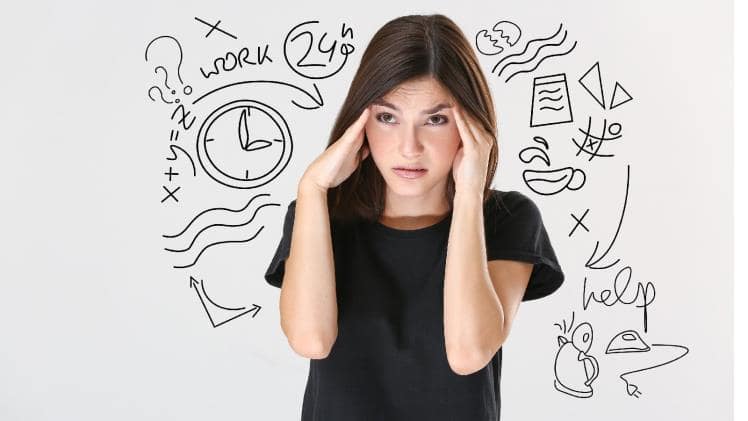Everybody experiences stress at some point or another. Stress is something that many individuals go through regularly, whether it is from a demanding job, strained personal relationships, an overwhelming workload, the expectations of others, or even just keeping up with the news. We can help you learn a good stress management technique that provides rehab Cape Town at unbeatable prices.
Different types of stress
Acute Stress and Chronic Stress are both recognized by the National Institute of Mental Health. Both types of stressors call for different approaches to stress management, but they differ in terms of the nature and length of the pressures they exert.
Acute Stress
It’s a typical stressor, and it doesn’t last long. Acute stress occurs when an individual anticipates difficulties or pressures in the future and reacts negatively to this anticipation. A deadline or the fallout from an argument are two such examples. If the deadline is met and the issue is settled, the stress will dissipate or at least be significantly reduced. Acute stress is caused by novel, unexpected factors that you may typically resolve quickly.
Acute stress can affect a person’s physical health, although it often only lasts a short time and causes symptoms, including headaches, upset stomach, and mild uneasiness. The psychological condition known as “chronic stress,” caused by prolonged exposure to acute stress, necessitates therapy.
Chronic Stress
Causes of chronic Stress are prolonged exposure to a stressful situation. Unlike acute stress, they do not have a quick fix. Some stress contributors to chronic stress include financial crises, traumatic experiences, family conflict, and loss. It is when a person gives in to overwhelming pressure because they feel there is no way out. The following issues are made worse by stress over longer periods:
Respiratory
Sleep
Cardiovascular
Reproductive
Immune
High blood pressure, cardiac disease, and type 2 diabetes all have stressed as their underlying cause. Psychiatric conditions encompass various illnesses, from major depressive disorder to post-traumatic stress to substance abuse. It changes who you are, making you more vulnerable to the impacts of stress in any situation. Young people should monitor their stress levels to avoid being anxious or tense later in life textboard.biz.
What Are Some Quick Methods for Reducing Stress?
Because of how common stress is, it’s crucial to be able to deal with it constructively. It reduces the harmful effects of stress and leads to normalized levels of stress hormones in the body. Try one of these when you need a break from the pressures of life:
Stress relief through eating well-balanced meals. Using caffeine, tobacco, or other drugs to cope with stress may seem like a good idea, but they worsen things in the long run. Conversely, it’s known to raise stress levels in people.
Working out releases endorphins, or “feel good” hormones, that lower blood pressure, stabilize blood sugar, and make you feel good overall.
Try relaxation techniques like deep breathing, meditation, guided imagery, etc., if you want to calm down. One’s physical well-being benefits from learning and using relaxing strategies.
Boost your confidence by loving and respecting yourself, celebrating your accomplishments, and never being too hard on yourself. An improved sense of identity helps people deal with stress and its negative consequences mymomblog.net.

